Guolong Zheng
Gradient-Guided Conditional Diffusion Models for Private Image Reconstruction: Analyzing Adversarial Impacts of Differential Privacy and Denoising
Nov 05, 2024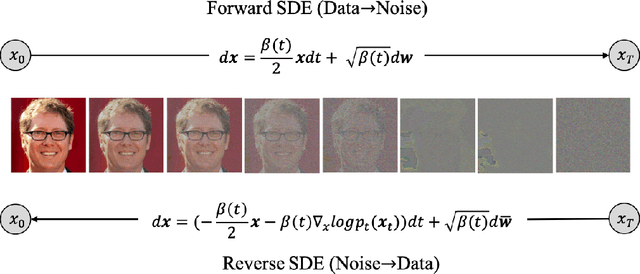
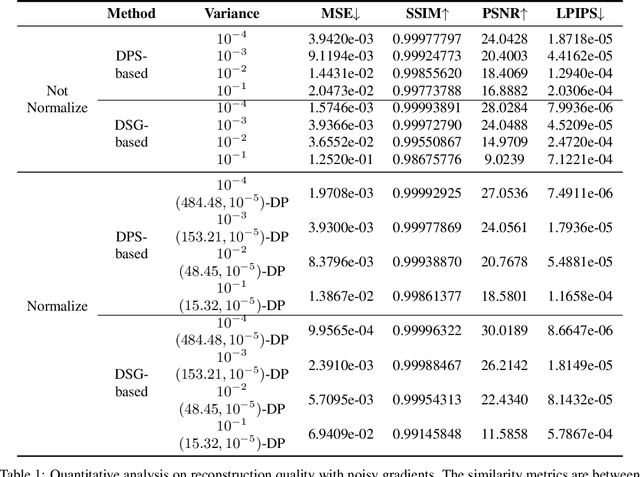
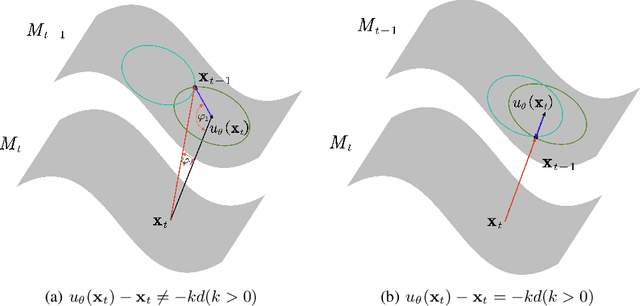
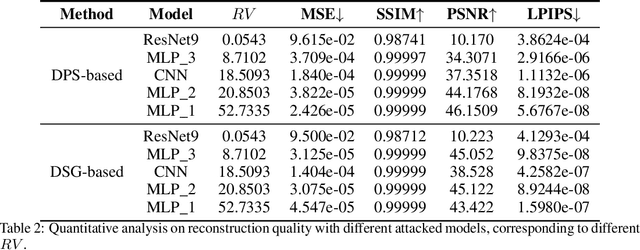
Abstract:We investigate the construction of gradient-guided conditional diffusion models for reconstructing private images, focusing on the adversarial interplay between differential privacy noise and the denoising capabilities of diffusion models. While current gradient-based reconstruction methods struggle with high-resolution images due to computational complexity and prior knowledge requirements, we propose two novel methods that require minimal modifications to the diffusion model's generation process and eliminate the need for prior knowledge. Our approach leverages the strong image generation capabilities of diffusion models to reconstruct private images starting from randomly generated noise, even when a small amount of differentially private noise has been added to the gradients. We also conduct a comprehensive theoretical analysis of the impact of differential privacy noise on the quality of reconstructed images, revealing the relationship among noise magnitude, the architecture of attacked models, and the attacker's reconstruction capability. Additionally, extensive experiments validate the effectiveness of our proposed methods and the accuracy of our theoretical findings, suggesting new directions for privacy risk auditing using conditional diffusion models.
Enhancing DP-SGD through Non-monotonous Adaptive Scaling Gradient Weight
Nov 05, 2024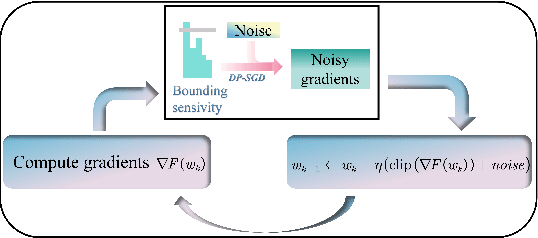
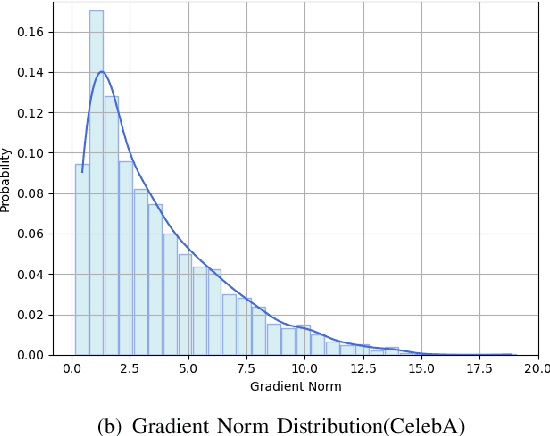


Abstract:In the domain of deep learning, the challenge of protecting sensitive data while maintaining model utility is significant. Traditional Differential Privacy (DP) techniques such as Differentially Private Stochastic Gradient Descent (DP-SGD) typically employ strategies like direct or per-sample adaptive gradient clipping. These methods, however, compromise model accuracy due to their critical influence on gradient handling, particularly neglecting the significant contribution of small gradients during later training stages. In this paper, we introduce an enhanced version of DP-SGD, named Differentially Private Per-sample Adaptive Scaling Clipping (DP-PSASC). This approach replaces traditional clipping with non-monotonous adaptive gradient scaling, which alleviates the need for intensive threshold setting and rectifies the disproportionate weighting of smaller gradients. Our contribution is twofold. First, we develop a novel gradient scaling technique that effectively assigns proper weights to gradients, particularly small ones, thus improving learning under differential privacy. Second, we integrate a momentum-based method into DP-PSASC to reduce bias from stochastic sampling, enhancing convergence rates. Our theoretical and empirical analyses confirm that DP-PSASC preserves privacy and delivers superior performance across diverse datasets, setting new standards for privacy-sensitive applications.
Unlabeled Action Quality Assessment Based on Multi-dimensional Adaptive Constrained Dynamic Time Warping
Oct 18, 2024
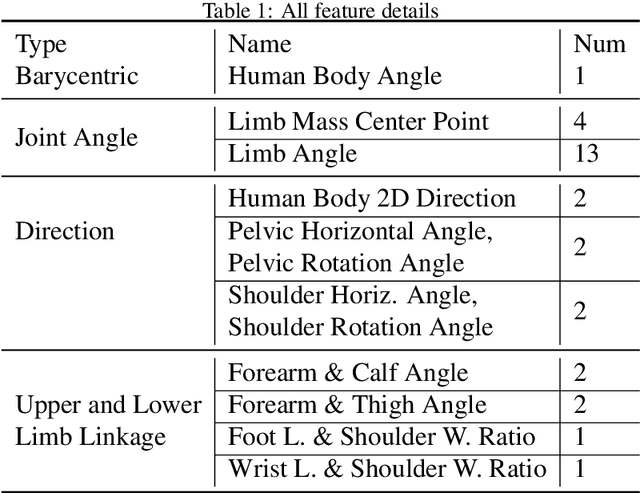

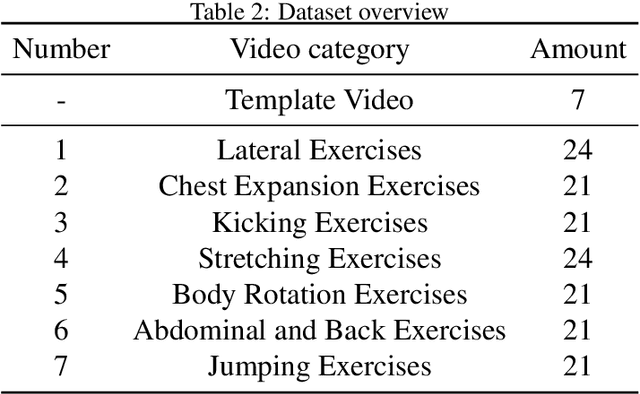
Abstract:The growing popularity of online sports and exercise necessitates effective methods for evaluating the quality of online exercise executions. Previous action quality assessment methods, which relied on labeled scores from motion videos, exhibited slightly lower accuracy and discriminability. This limitation hindered their rapid application to newly added exercises. To address this problem, this paper presents an unlabeled Multi-Dimensional Exercise Distance Adaptive Constrained Dynamic Time Warping (MED-ACDTW) method for action quality assessment. Our approach uses an athletic version of DTW to compare features from template and test videos, eliminating the need for score labels during training. The result shows that utilizing both 2D and 3D spatial dimensions, along with multiple human body features, improves the accuracy by 2-3% compared to using either 2D or 3D pose estimation alone. Additionally, employing MED for score calculation enhances the precision of frame distance matching, which significantly boosts overall discriminability. The adaptive constraint scheme enhances the discriminability of action quality assessment by approximately 30%. Furthermore, to address the absence of a standardized perspective in sports class evaluations, we introduce a new dataset called BGym.
 Add to Chrome
Add to Chrome Add to Firefox
Add to Firefox Add to Edge
Add to Edge